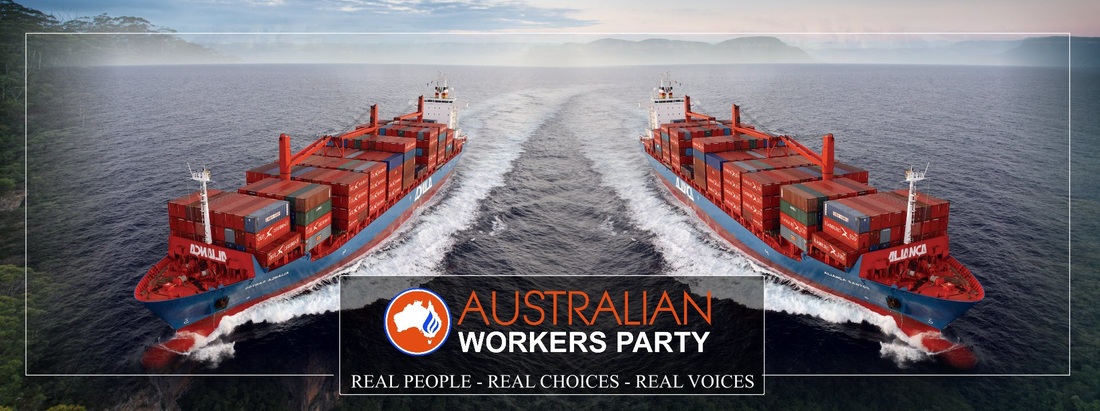AUSTRALIAN COASTAL SHIPPING LEGISLATION UPGRADE
- No foreign Flagged ship will trade on the Australian Coast
- A voyage beginning at any point on the Australian Coast which is delivering any manner of commercial cargo to any other point on the Australian coast is considered “Coastal Trade”
- Commercial will include dredged materials used for landfill or reclaimed land. Sewage will not be deemed as commercial for it has no commercial value.
- Vessels used to tow or transport valueless materials will at all times meet all rules and terms of the Australian Coastal Shipping Legislation.
- Any vessel unless used solely for personal pleasure is to be registered for coastal trade and inspected.
- Bareboat charters of foreign built or owned vessels are permitted under the fiction that a true "bare boat charter" is not a commercial application and the Australian Coastal Shipping legislation applies only to commercial applications.
- The use of foreign owned or foreign built yachts in a commercial application is strictly prohibited. However, foreign built and owned yachts may operate in Australian waters for pleasure and non-commercial purposes. These vessels may also be chartered in Australian waters, as well, but only for non-commercial purposes. If a businessman charters a foreign built yacht to entertain his clients he and the owner are in violation.
- The term passenger for hire means any transportation aboard a vessel in which some consideration, i.e., benefit, flows from the passenger, his agent or representative to the owner, his agent or representative. Consequently, business guest may be considered a "paying" passenger because of the flow of business good will to the owner. Consequently, where a group or organization charters a vessel and members contribute to the cost of the charter, the organization may be found to have passengers for hire. The underlying purpose is to create a distinct line between commercial or business use and pleasure use. No matter how we describe the conduct of the parties there will always be a grey area of discretionary enforcement. Legally, if a guest aboard a vessel provides fuel, food or beverage for the voyage that is consumed by the owner, we have a passenger for hire situation. Realistically this will probably not be enforced unless other factors are involved
- The true bareboat charter must be noncommercial and the owner must relinquish the custody and control of the vessel, entirely. If the owner skippers the vessels or controls the choice of the skipper, then the charter is not a true bare boat charter and will be considered carrying passengers for hire.
- Violations of the Australian Coastal Legislation may, but does not necessarily result in forfeiture of the vessel to the Australian Government. In the event of forfeiture, the vessel is deemed to have become the property of the Australian Government at the instant of violation and allows immediate seizure. There are provisions for remission of the vessel and payment of fine and penalties. Also, mortgagor holders and lien holders may petition the government for remission to protect their interests in the vessel.
- The Australian coastal Legislation also governs the relationship between the employer and crew aboard an Australian vessel. Prior to legislation, seamen were very limited as to their ability to recover for injuries aboard ship. The Legislation makes the Employers Liable to seamen. Under Australian law, seamen are entitled to a somewhat more liberal interpretation of the concepts of negligence and the employer has a somewhat higher degree of care. Under the Legislation, the employer if liable for "any injury" arising in whole or in part from the negligence of any of the officers, agents or employees of the employer, or by reason of any defect or insufficiency of equipment due to negligence of the employer. The employee must prove negligence. The negligent act is not required to be the sole proximate cause of the injury
- An interesting side point which is not uncommon in some areas is that if the master and crew are in a joint venture, that is they share the control of the project and share the rewards, the employer-employee relationship does not exist and these provisions of the platform will not apply. Also, it does not apply to volunteer, unpaid crew members on yachts. However, paid crew members on pleasure yacht still are covered.
- Injuries that are covered are not only work related, but also if the injury occurred during his living aboard the vessel or in his coming or leaving the vessel. Interestingly, if the master has a policy of allowing drunken seamen to return to the ship in an inebriated condition, he will be held liable for any injury that may occur during their ingress and egress even in a drunken condition.
- Negligence of the owner/master have been determined to be such things as failure to maintain safe equipment and appliances; care in selecting a competent master and fellow crewmen; assaults by fellow crewmen within scope of work; negligent orders; requiring overtime; failure to avoid heavy weather; failure to provide medical treatment; failure to rescue; and failure to supervise, among others

